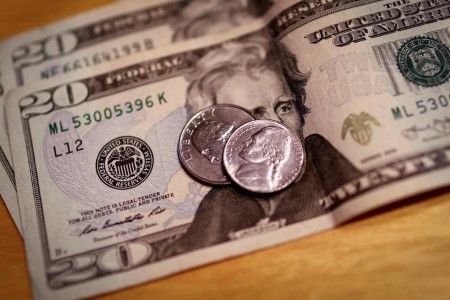LONDON, March 9 (Reuters) – What a difference a year makes.
In the past twelve months, the oil market has absorbed the impact of Russia’s invasion of Ukraine and the sanctions imposed in response by the United States, the European Union and their allies in Asia.
Russia’s crude and fuel exports have been redirected to South and East Asia, while former markets in Europe have been backfilled with crude and products from the Middle East and Asia.
The United States and EU have imposed broad sanctions on Russia’s exports, including ancillary financial and shipping services, but softened them with significant exceptions and a relaxed approach to enforcement.
And a global slowdown in manufacturing and freight activity has trimmed consumption of diesel and other middle distillates, easing the introduction of sanctions while avoiding any physical shortages.
As a result, benchmark oil prices have retreated by nearly 40% from their post-invasion high on March 8, 2022, after adjusting them for core inflation.
Following the initial shock, crude prices have traded in a tight range since late November, with spot prices, calendar spreads and volatility all converging towards long-term averages:
- Brent’s front-month futures contract finished trading below USD 83 per barrel on March 8, 2023, in the 43rd percentile for all months since the turn of the century, after adjusting for inflation.
- Front-month prices have settled back from an inflation-adjusted post-invasion high of USD 134 a year ago (76th percentile), when traders were concerned about a possible cessation of Russian exports.
- Brent’s six-month calendar spread closed in a backwardation of USD 2.50 per barrel on March 8 (75th percentile), reflecting the low level of inventories, but still down from a record high of USD 22 a year ago.
- Realised price volatility in the front-month contract has fallen to an annualised rate of less than 25% (34th percentile) down from a peak of 88% (98th percentile) a month after the invasion.
- In the physical market, dated Brent’s five-week spread is in a backwardation of just 9 cents (50th percentile), down from USD 7 (99th percentile) a year ago.
Chartbook: Brent prices, spreads and volatility
Traders have found a temporary equilibrium, with prices bounded above by fears about a business cycle slowdown and rising interest rates, and below by expectations for a rebound in China and the low level of inventories.
Reflecting that balance, fund managers held a fairly average combined position across the six major futures and options contracts of 576 million barrels (47th percentile) on February 14, the most recent data available.
Like all equilibria in the oil market, this one is likely to prove temporary and fragile – lasting until one or more of the risks around recession, inflation and China’s post-pandemic rebound materialise or fade away.
Global petroleum inventories remain well below the prior ten-year seasonal average and there is little (unsanctioned) spare capacity in either the crude production or refining systems.
If the global economy and petroleum consumption growth accelerate again, inventories and spare capacity will become critically low rapidly, contributing to the next price cycle.
Conversely, if the global economy slides into a full-blown recession, inventories will rise and prices and spreads are likely to soften further.
For the moment, however, the oil market has returned to balance less than twelve months after one of the largest shocks since the World War Two.
Related columns:
– Oil prices slump as receding price-cap threat unmasks worsening demand (December 8, 2022)
– Oil prices fall on relaxed Russia price cap (December 6, 2022)
– Global recession a bigger risk to Russia’s oil revenue than price cap (November 11, 2022)
– Recession would make tough oil sanctions on Russia more likely (July 14, 2022)
John Kemp is a Reuters market analyst. The views expressed are his own
(Editing by Paul Simao)
((john.kemp@thomsonreuters.com; +44 207 542 9726 on twitter @JKempEnergy; Reuters Messaging: john.kemp.thomsonreuters.com@reuters.net))







 DOWNLOAD
DOWNLOAD








